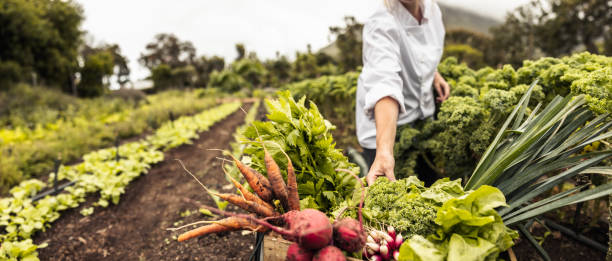Categories
Categories
Brands
Brands
The Green Revolution: Embracing Organic Gardening for Eco-Friendly Cultivation
Posted by on

Organic gardening is more than just a trend; it's a sustainable way of cultivating plants while respecting the environment and promoting healthy, chemical-free produce. In this blog post, we'll delve into the world of organic gardening techniques, composting, and natural pest control methods. By the end, you'll be armed with the knowledge to embark on your eco-friendly gardening journey.
Organic Gardening Techniques:
- Soil Health: The foundation of successful organic gardening lies in healthy soil. Begin by testing your soil's pH and nutrient levels. Use organic matter like compost and well-rotted manure to improve soil structure and fertility.
- Crop Rotation: To prevent soil depletion and the buildup of pests and diseases, practice crop rotation. Change the planting location for different crops each season.
- Companion Planting: Harness the power of nature by planting complementary species together. Certain plants can deter pests or enhance each other's growth. For example, marigolds deter aphids, and basil enhances the flavor of tomatoes.
- Mulching: Apply organic mulch, such as straw, leaves, or wood chips, around your plants. Mulch conserves soil moisture, suppresses weeds, and regulates soil temperature.
Composting:
- Compost Basics: Composting is the cornerstone of organic gardening. Collect kitchen scraps (fruit and vegetable peels, coffee grounds, eggshells), yard waste (grass clippings, leaves), and organic matter (straw, small branches) in a compost bin or pile.
- Balanced Compost: Achieve a balanced compost pile by maintaining a mix of "green" (nitrogen-rich) and "brown" (carbon-rich) materials. Green materials include kitchen scraps and fresh yard waste, while brown materials consist of dried leaves, straw, or shredded newspaper.
- Aeration and Turning: Regularly turn your compost pile to aerate it. This encourages decomposition and prevents unpleasant odors. Aim for a mix of moist but not waterlogged materials.
- Patience Pays Off: Composting is a slow process, but the rewards are worth it. In several months to a year, you'll have nutrient-rich, dark, and crumbly compost ready to amend your garden soil.
Natural Pest Control Methods:
- Beneficial Insects: Attract beneficial insects like ladybugs, lacewings, and parasitic wasps to your garden. They prey on common garden pests like aphids and caterpillars.
- Neem Oil: Neem oil is an effective organic pesticide that repels a wide range of garden pests. Dilute it according to the manufacturer's instructions and apply it to affected plants.
- Soap Sprays: A mixture of mild soap and water can help control soft-bodied pests like aphids and spider mites. Spray it directly on the pests, ensuring thorough coverage.
- Crop Covers: Use row covers to physically block insects from reaching your plants. These covers allow sunlight and water to reach the plants while keeping pests at bay.
Organic gardening isn't just about growing plants; it's a commitment to sustainability, health, and environmental stewardship. By implementing organic gardening techniques, composting, and natural pest control methods, you'll not only enjoy the fruits of your labor but also contribute to a healthier planet. So, roll up your sleeves, embrace the principles of organic gardening, and watch your garden thrive while leaving a smaller ecological footprint. Happy gardening!
 Loading... Please wait...
Loading... Please wait... 